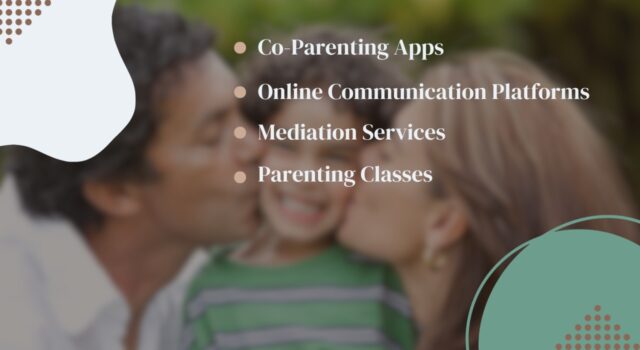Divorce, while challenging for anyone, poses unique hurdles for mothers. Beyond the emotional strain, there’s a pressing need to ensure both their and their children’s well-being.
This guide offers moms a roadmap through the legal intricacies and parenting challenges tied to divorce.
Legal Foundations

- Know Your Rights: Every jurisdiction is different, but many afford both parents equal custody rights unless there’s a significant reason otherwise. It’s crucial to understand where you stand legally. The thesandslawgroup can help you with this.
- Selecting a Lawyer: Ensure you partner with a lawyer well-versed in family law. They should not only be adept at legalities but also sensitive to the emotional challenges you face.
- Record Keeping is Crucial: From financial data to exchanges with your ex-spouse, maintaining thorough documentation can significantly impact the outcome of divorce proceedings.
Navigating Custody
- Shared vs. Sole Custody: Understand the distinctions. While shared custody entails equal decision-making for both parents, sole custody gives one parent the prerogative. Prioritize your child’s best interests.
- Smooth Visitation: Consistent visitation schedules foster stability. Co-parenting tools can be indispensable in coordinating and tracking transitions.
Financial Aspects

- Child Support: This is generally linked to the non-custodial parent’s income and the number of kids. Know how this is worked out in your area and ensure comprehensive income disclosure.
- Alimony Insights: Depending on various factors like marriage duration and financial disparities, you might be entitled to alimony. It’s vital to discuss this with your attorney.
Emotional Anchors
- Consider Counseling: Therapy can be immensely helpful for both you and your child. It’s a platform to address emotions and establish coping strategies.
- Lean on a Support Network: Engage with support groups. Sharing experiences and gleaning insights from peers can be therapeutic.
Effective Co-Parenting
- Prioritize Communication: A continuous dialogue with your ex, especially about your child’s necessities, is paramount.
- Neutrality for Kids’ Sake: Refrain from disparaging your ex in your child’s presence. Such negativity can affect their emotional health and their perception of the other parent.
Assisting Kids Through Transition
- Constant Reassurance: Reinforce the fact that both parents love them unconditionally, and the divorce isn’t their fault.
- Consistency in Routine: Regular routines, from bedtime stories to weekly outings, can greatly assist in your child’s adjustment.
Embracing the Future
- Rediscover Yourself: Use this time post-divorce to pursue passions, acquire new skills, or even chart a new career trajectory.
- Approaching New Relationships: If and when you decide to date again, do so at your pace, ensuring your prospective partner respects your role as a mother.
Co-Parenting Tools for Success

Effective co-parenting is the cornerstone of a smooth transition for both you and your children during and after a divorce.
While it may be challenging, it is essential for maintaining stability in your child’s life. Co-parenting tools can prove invaluable in making this process more manageable.
Co-Parenting Apps:
There are numerous smartphone apps designed specifically for co-parents. These apps help you coordinate schedules, share important information, and even track expenses related to your child. Some popular options include OurFamilyWizard, coParenter, and Custody Connection.
Online Communication Platforms:
In this digital age, online platforms can facilitate communication between you and your ex-spouse. Emails, text messaging, or even video calls can help you stay in touch and discuss matters related to your child without the need for face-to-face interaction.
Mediation Services:
Sometimes, disagreements arise even with the best co-parenting intentions. In such cases, consider mediation services to help resolve conflicts. A neutral third party can guide discussions and help both parties reach mutually agreeable solutions.
Parenting Classes:
Many divorce courts require parents to attend parenting classes. Even if not mandated, these classes can be beneficial for learning effective co-parenting strategies and improving communication skills.
Building Resilience Through Counseling
The emotional toll of divorce can be overwhelming for both you and your child. Seeking professional counseling can provide a safe space to navigate these complex emotions and build resilience.
- Individual Therapy: Consider individual therapy sessions for both you and your child. These sessions allow you to address personal feelings and concerns while providing your child with a confidential outlet to express their emotions.
- Family Therapy: Family therapy can be a valuable tool for fostering open communication and healing as a family unit. A skilled therapist can help you and your child work through the challenges of divorce together.
Financial Preparedness
Understanding the financial aspects of divorce is crucial for securing your and your child’s future financial well-being.
- Property Division: Be aware of the laws in your jurisdiction regarding the division of assets and property. Consult your attorney to ensure a fair and equitable distribution.
- Budgeting and Financial Planning: Create a post-divorce budget that considers your new financial situation. This can help you make informed decisions about housing, education, and other expenses related to your child.
- Estate Planning: Review and update your estate plan, including wills and beneficiaries, to reflect your new circumstances and ensure your child’s financial security in the event of unforeseen circumstances.
Moving Forward with Confidence

As you navigate the challenging terrain of divorce and motherhood, remember that self-care and personal growth are essential for your well-being and your child’s future.
- Self-Discovery: Use this period of transition to rediscover yourself. Explore your passions, hobbies, or career aspirations that may have been put on hold during your marriage. Self-fulfillment can be empowering.
- New Relationships: If you choose to enter a new relationship, do so at your own pace. Ensure that your prospective partner understands and respects your role as a mother. Introducing a new partner to your child should be done thoughtfully and gradually.
Final Words
Merging the challenges of divorce and motherhood can indeed be daunting. But equipped with the right legal counsel, robust parenting techniques, and ample emotional support, mothers can safeguard their children’s and their own well-being.
Always prioritize your children and remember that seeking guidance, be it emotional or legal, is emblematic of strength, not vulnerability.









